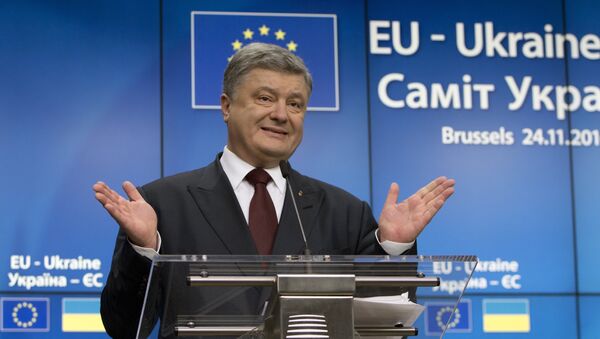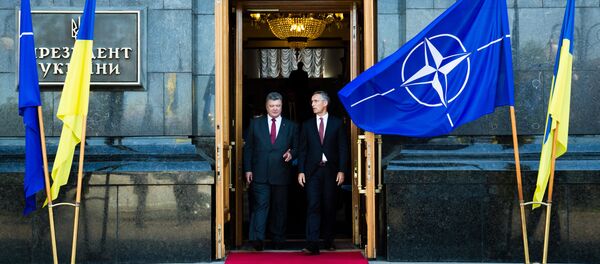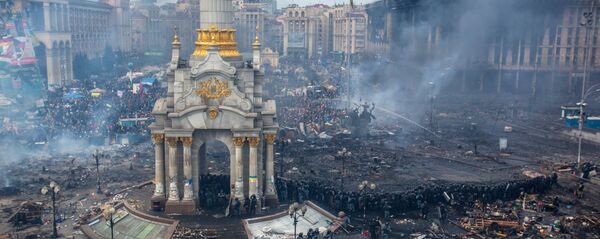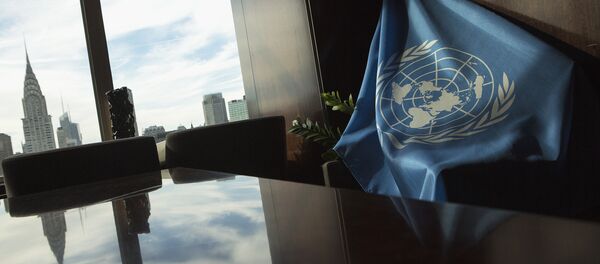Late last week, Ukrainian Foreign Minister Pavlo Klimkin boasted to Austrian media about the "many things" NATO's armies can learn from the Ukrainian military, including "tactics, endurance and combat readiness."
"Without these things modern weapons just won't help," he said. In the same interview, the minister also indicated that his country would only enter the European only when Brussels itself was ready, noting that "Kiev is in no hurry."
Still, Berg added that no matter how ridiculous Klimkin's words might seem, he wasn't wrong. "Many, by inertia, continue to believe that Kiev is completely dependent on its sponsors, and cannot make a single step without their permission — that it is an obedient and studious vassal of its Western operators, and snaps a salute as soon as the latter raises an eyebrow," the commentator wrote. The reality, she added, is that on some issues, nothing could be further from the truth.
Kiev, Berg observed, has allowed itself the luxury of disregarding its Western partners' concerns, even ignoring direct instructions outright. The situation surrounding pensioners in the war-torn region of Donbass was a perfect example.
"Every year, monitors from the UN, the OSCE, and human rights groups criticize Kiev over the fact that about 400,000 residents of the region have been denied pensions, and say that the Ukrainian government is obliged to rectify this situation." In response, Ukrainian state and social media engage in attack campaigns against the pensioners, accusing them of separatism, while Kiev blissfully ignores the Western officials' concern.
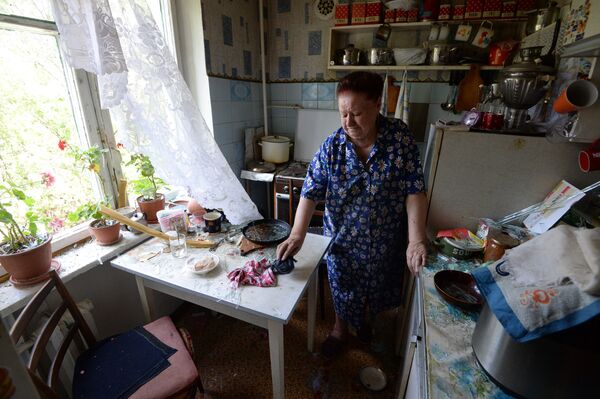
In other words, Berg wrote, "the indignation of the [foreign] monitoring commissions can be likened to a ritual dance with a tambourine, before everyone forgets about the unhappy pensioners, at least until the next eruption of human rights concerns. That is, Kiev tells its Western sponsors to go where the sun don't shine, and they line up in a row and set out merrily on their way."
On the contrary, Berg noted, "merely ignoring their sponsors' instructions has ceased to amuse Ukrainian authorities, who have come to sense that they could do whatever they wanted, without consequences, while the dramatic staged cries by the sensitive West can and should safely be ignored. Therefore, the president and lawmakers boldly go further, spitting right in the eyes of their curators…By default, Ukraine has become an untouchable enfant terrible, with everything it does being forgiven."
This, the commentator wrote, is applicable to things like the secret prisons being run by the Ukrainian Security Services, which human rights observers have accused of engaging in torture, violence against inmates, and even extrajudicial killings.
"In the years since Maidan [the pro-Western coup in Kiev in February 2014], Western rights activists and their local grant-funded counterparts…have been morosely marking their concern and anxiety regarding [these prisons]. After all, the burden on these illegal detention centers has risen dramatically thanks to the fact that the new 'democratic' government threw its opponents – including anti-Maidan activists, ex-lawmakers, former members of the government, and others into these prisons."
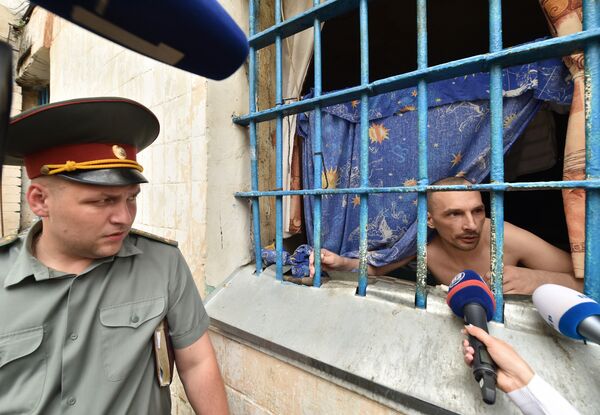
"For years, Donbass residents grabbed in the warzone have been detained there, forming an 'exchange fund' for bargaining for Ukrainian military POWs. Often, these are genuine random passers-by, [detained for being] suitable for exchange. Torture, beatings, humiliation – this is the routine format of the work of these prisons. At first, Ukrainian authorities half-heartedly attempted to deny the existence of such prisons, although hiding their smooth functioning was impossible. A year ago, a UN monitoring mission was forced to halt its visit to Ukraine, after the Ukrainian Security Services simply refused to allow them to visit a prison. What happened next? Nothing."
Finally, the commentator wrote, there was the issue of Ukraine's ongoing "ideological reformatting" – the forced assimilation of Russian-speakers, humiliation and persecution of citizens on the grounds of nationality, religion, or political beliefs, the esthetization of Nazi symbols, the glorification of WWII-era Nazi collaborators, open calls for extrajudicial executions of critics of the government, and so on. This includes radical nationalist attacks on peaceful protests, intimidation and beatings of opposition figures, threats, harassment and other forms of pressure leveled against dissidents.
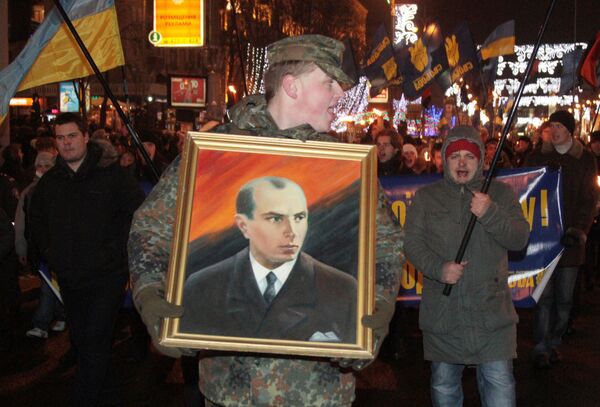
Through it all, Berg noted, "the West has been monumentally silent, even though if just 1% of what is happening in Ukraine were to take place in 'civilized Europe', the offender would be in big trouble."
"Occasionally, only the Poles cry out…for them, Bandera and Shukhevych, [two Nazi collaborators glorified by the present Ukrainian authorities] are like a knife to the heart, since they were executioners of the Polish people. The Poles get nervous, scream something, shake their fists and say they won't allow this, won't forgive, etc. But Kiev has the assurance that they will be forgiven…For Poland, Ukraine is a critically important resource – a source of cheap labor and an eternal ulcer in Russia's underbelly."
"Kiev was added to the club of tyrannical governments…it was demanded that the ban be lifted immediately, that access be restored, and that freedom of speech be ensured…What happened next? Not much. [President] Poroshenko explained to his excitable overlords that without the block, Ukraine could not survive – that the enemy would launch an assault on Kiev using the Yandex search engine's maps feature. The West swallowed it. And peace and quiet returned" to relations between Kiev and its Western partners.
How long all of this will last remains uncertain. In any case, Berg noted that the relationship between Ukraine and its foreign sponsors is shaping up to look distinctly like a case of the tail wagging the dog.
